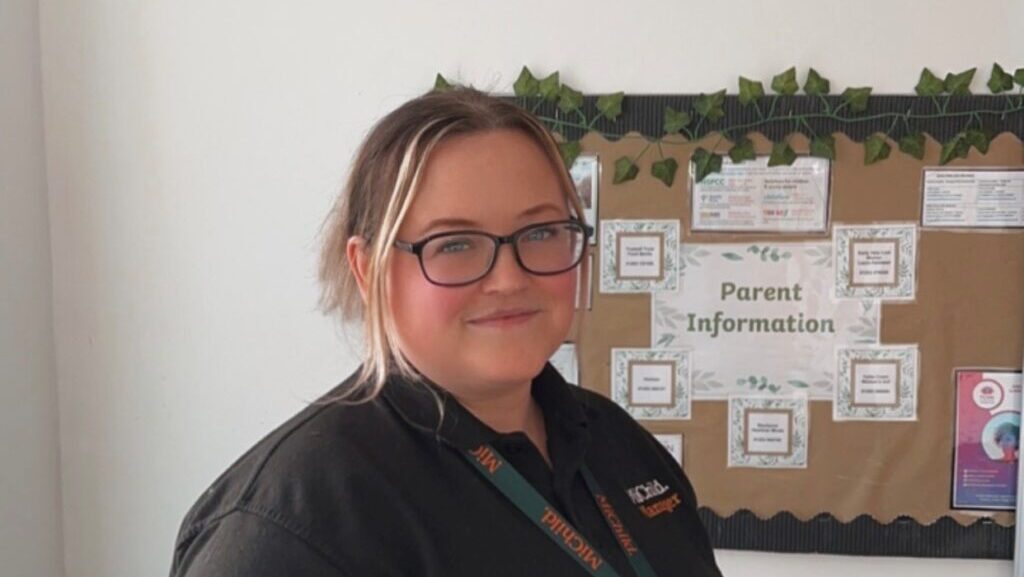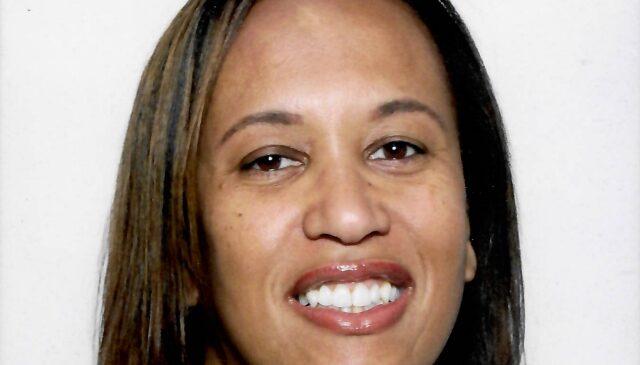In our series showcasing the sector’s nursery managers, we find out about Claire Mills, manager at MiChild’s Newhouse Nursery in…
Your qualification questions answered
With recent changes to the EYFS and apprenticeship standards, there’s a lot to take in when it comes to early years qualifications. In part two of our series, NMT answers some of your most frequently asked questions.

Do Level 3 practitioners need a GCSE or equivalent in maths to count in ratio?
No, but Level 3 apprentices still do
From January this year, practitioners with a full and relevant Level 3 qualification no longer need maths GCSE or equivalent to count as Level 3 in the staff/child ratio, no matter when their Level 3 qualification was gained. However, apprentices in all sectors need to have maths GCSE or equivalent in order to complete the End Point Assessment (EPA) of their apprenticeship, and there is no exception for the Early Years Educator (EYE) Level 3.
Current apprentices, who started their apprenticeship before 1 April 2024 and who are unable to achieve their EPA due to not passing maths, can be awarded their Level 3 diploma and work as qualified in ratio as long as they have an English Level 2 qualification. However, those who start their EYE apprenticeship from 1 April 2024 will no longer have this option, as the mandatory diploma has been removed from the Level 3 standards. This means apprentices will only gain their qualification if they achieve EPA.
Do nursery managers need a GCSE or equivalent in maths and English?
Yes, if they are a new manager or taking on a new role
Following changes to the EYFS, nursery managers employed on or after 4 January 2024 must hold a Level 2 maths qualification or achieve one within two years of starting the position.
Can I count someone who is studying for a ‘full and relevant’ Level 3 qualification as a Level 2 in ratio?
Yes, if you are satisfied they are competent and responsible
Since 4 January this year, managers have been given the option of allowing suitable students on long-term placements and apprentices to be included in the staff/ child ratios at the level below their level of study if they are satisfied that they are sufficiently competent and responsible. So those studying Level 3 apprenticeships and students taking a degree that confers ‘full and relevant’ status at Level 3 could count as Level 2 in the ratio, and students studying for early years teacher status could count as Level 3.
“My advice would be that the manager has a checklist based around the key elements of the Level 2 early years practitioner standards, to evidence the competency and responsibility of a student being counted in ratio at Level 2,” says Sophie Hayter, senior talent development partner at N Family Club and founder of Facebook group Early Years & Teaching Assistants Training & Qualifications. “Having confirmation from your training provider that the apprentice is on track and progressing well within their apprenticeship would also be evidence of competency.”
Is the NCFE cache Level 3 award in childcare and education ‘full and relevant’?
No
It is a genuine qualification, recognised by Ofqual, the government Office of Qualifications and Examinations Regulation, which regulates qualifications, examinations and assessments in England. An award is a ‘nested’ qualification which means you can use it as a foundation to gain a certificate and then a diploma.
However, by itself, the NCFE cache Level 3 award in childcare and education is only the first three units of the Early Years Educator, so would not be recognised as ‘full and relevant’ and would not qualify the holder to count as Level 3 in ratio.
“It is a regulated qualification but it doesn’t give license to practice,” says Hayter.
Is it always clear whether qualifications offer a licence to practise?
No
“There are many companies that offer unregulated training courses, which are not recognised by Ofqual,” says Hayter. “They might provide an opportunity to gain some underpinning knowledge of working in the early years sector, but if someone is looking for a qualified role within the EYFS, this will not enable them to do so. The way that these companies advertise these qualifications can be very misleading, the language they use often suggests that their course will qualify applicants to work in early years, which is not accurate. This then leaves employers having to inform the candidate that they are not actually qualified because the course that they have completed is not approved by the DfE. I receive countless posts in the Facebook group from managers who are in this position.’’
If someone has Qualified Teacher Status, can they be counted as Level 6 in ratios?
Yes, but managers need to decide whether they have enough early years knowledge
Anyone with Qualified Teacher Status (QTS) counts as Level 6 in ratios, which means they can look after up to 13 three- and four-year-olds, as long as they are working with at least one other member of staff with a full and relevant Level 3 qualification. However, this is a bit of an anomaly, as a person with QTS may not ever have worked with young children.
“I contacted the Department for Education to query this, given that all other ‘full and relevant’ qualifications are early years-specific,” says Hayter. “The DfE said it is up to the employer to make a judgement on whether the teacher has the necessary knowledge to be considered as qualified within the EYFS.”
This puts the onus very much on the owner or manager to make the decision. “If the teacher has other qualifications or suitable experience working within the EYFS, for example they have worked in reception year, you can easily identify they have the necessary skills and knowledge,” says Hayter. “But you may not be able to say the same in regards to an applicant who has only ever taught outside of the EYFS. In these cases, managers may want to consider offering the individual additional training such as early years teacher training or a level 3 EYE.”
Is a master’s degree in early years full and relevant?
No
Although it seems counterintuitive, as we are used to thinking of people with a master’s degree as highly-qualified, a master’s degree doesn’t allow a practitioner to count as either Level 3 or Level 6 in ratio. If they don’t have another qualification they will be counted as ‘unqualified’.
“Master’s degrees are academic qualifications for those who already have a degree to focus on a specific area,” explains Hayter. “They aren’t ‘competency’-based qualifications, so unless the holder has another qualification such as a Level 3 early years educator, an early years degree which has been assessed in practice, Early Years Teachers Status (EYTS) or Qualified Teacher Status (QTS) they are not qualified in ratio.”
Does the new Level 6 qualification Early Years Educator Advanced Diploma in Applied Innovative Practice in Early Childhood Pedagogy and Care give a licence to practise?
Yes
The National College for Care and Education (NCCE) and national awarding organisation Training Qualifications UK (TQUK) have launched a Level 6 Early Years Educator Advanced Diploma in Applied Innovative Practice in Early Childhood Pedagogy and Care. The Department for Education has confirmed that the qualification offers a licence to practise at Level 3.
The DfE has a policy not to list every individual Level 6 qualification that is ‘full and relevant’ at Level 3, instead setting out the criteria a qualification must meet. For this reason, the qualification is not listed, but the DfE has provided NCCE with an official letter confirming its ‘full and relevant’ status.
The diploma was developed to act as a bridge between vocational qualifications at Level 5 and academic qualifications at Level 7. Students must already hold a Level 5 qualification, but this does not have to be in early years.
“We also welcome allied sectors, for example a student may hold a foundation degree in health and social care or education,” says Sam Ballington, director of teaching and learning at NCCE. The NCCE says the diploma, which is worth 120 credits, is the equivalent of a top-up degree and can therefore be used a stepping stone to Early Years Teacher Status, QTS or another Level 7 programme. “We can support with applications to EYTS,” says Ballington. The awarding body has applied to gain funding approval for the qualification so learners can access Advanced Learner Loans, which will shortly be replaced by the Lifelong Learning Entitlement, but currently learners must fund themselves.
Latest Managers
A London nursery owner is running a free training event for nursery owners and human resources leaders to mark National…
In our series showcasing the sector’s nursery managers, we find out about Suzanne Charlesworth, nursery operations director at Kamelia Kids…




